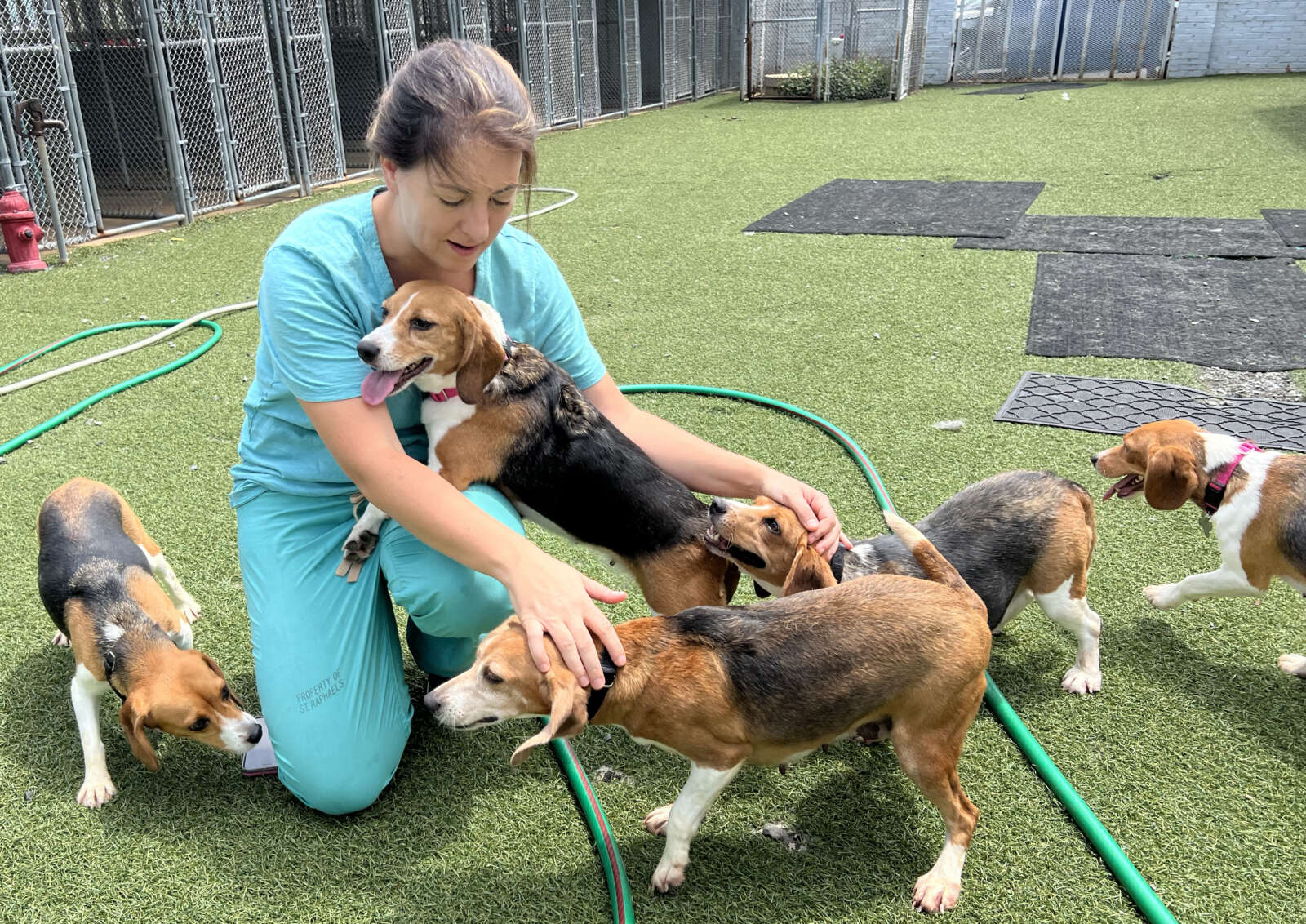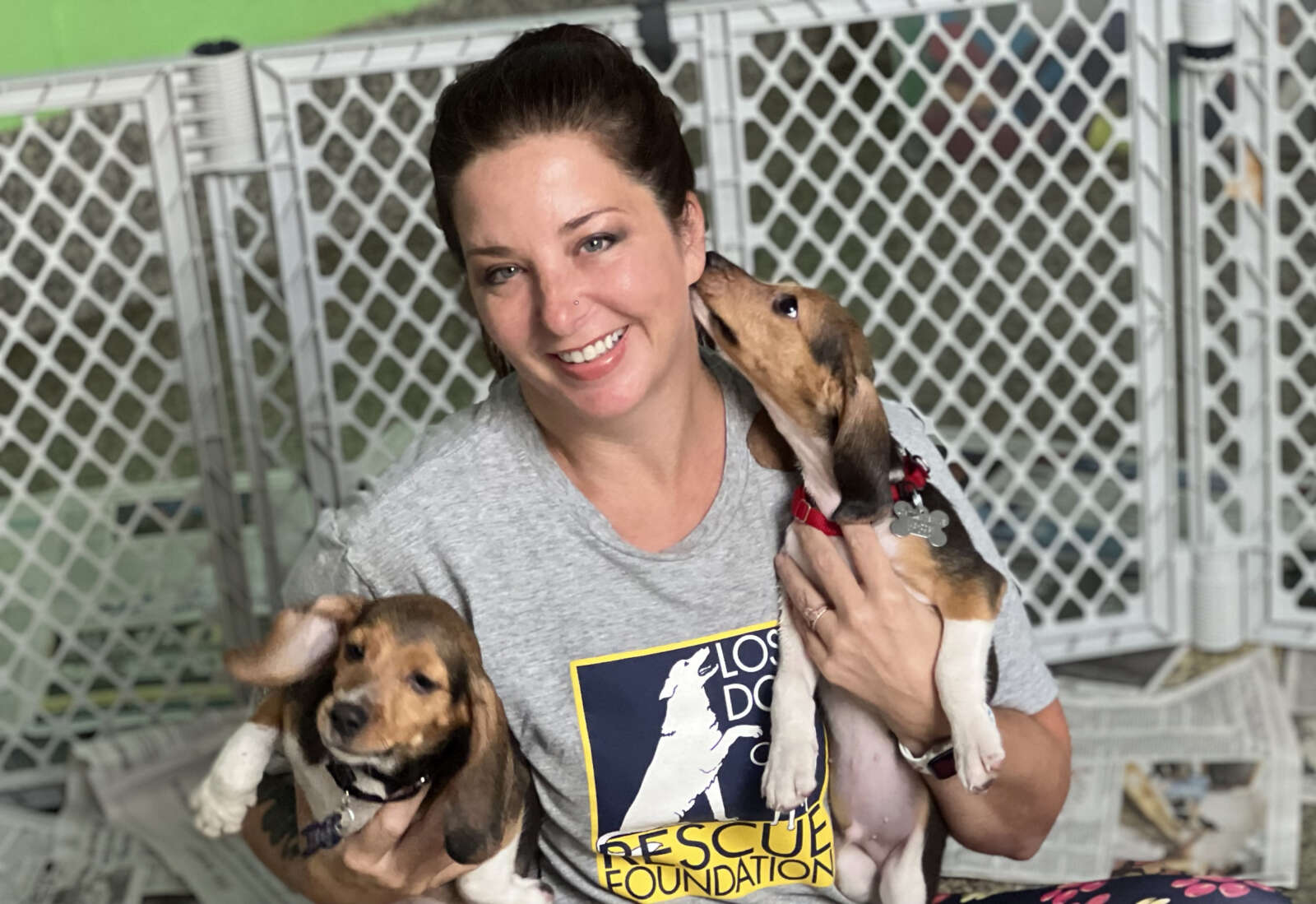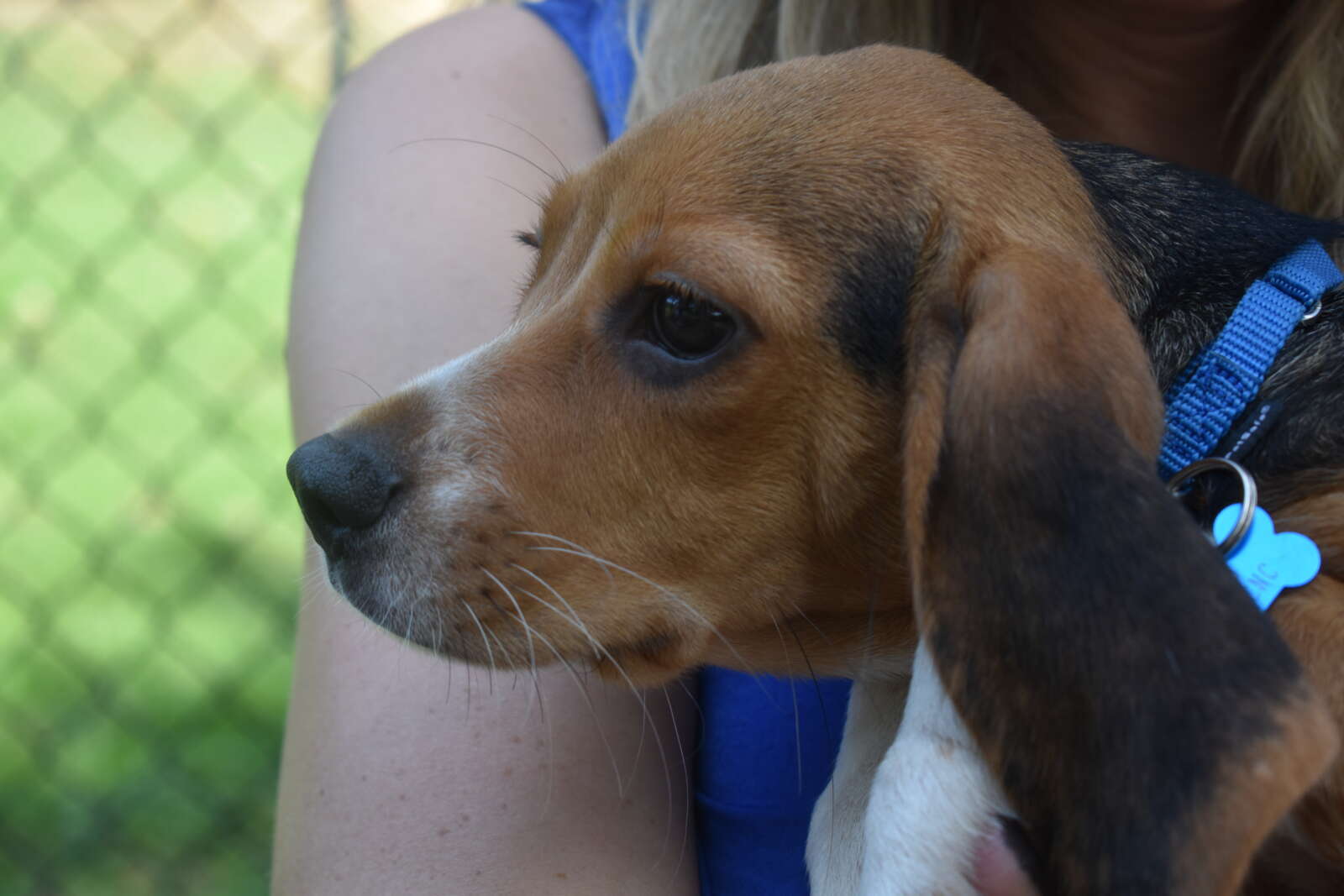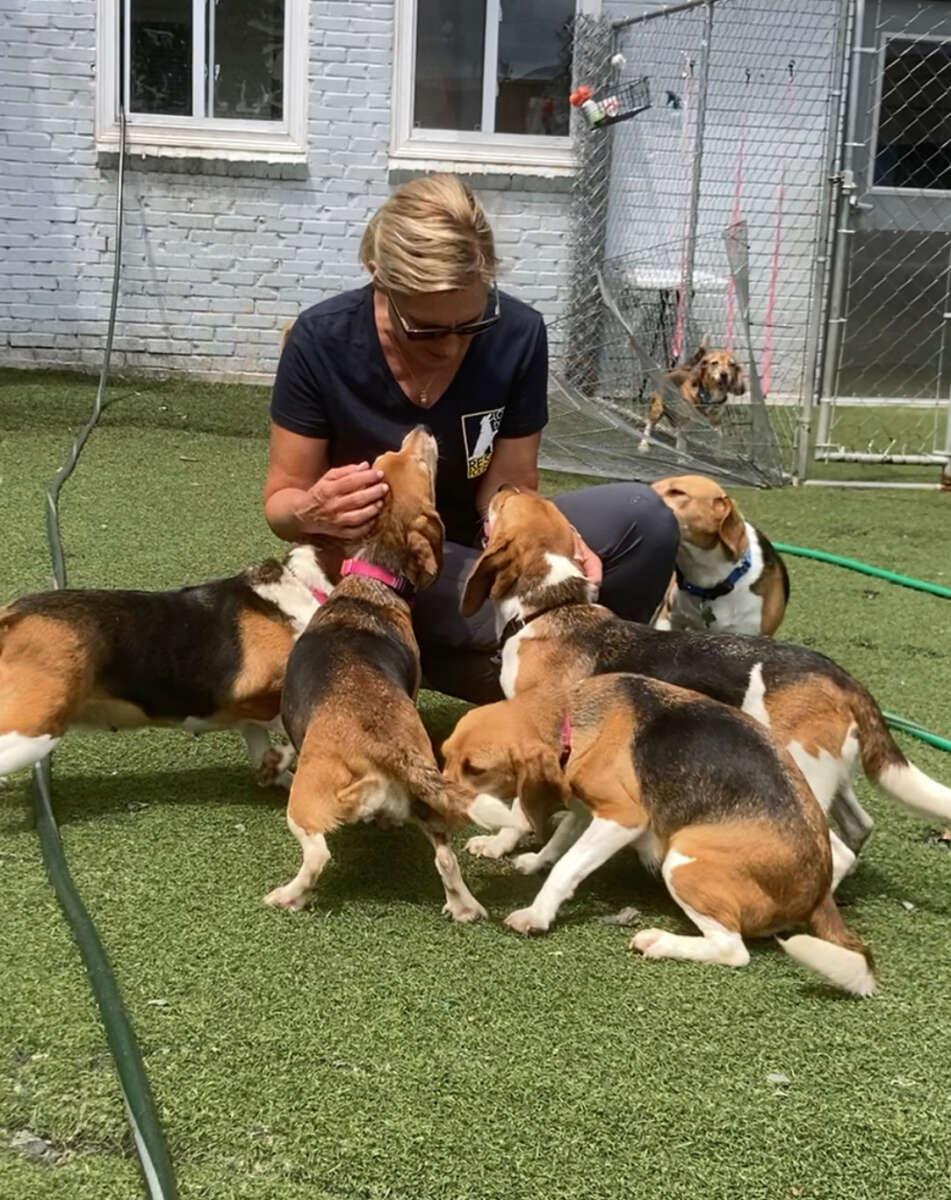After spending all of their lives in kennels, nearly 70 beagles will soon be up for adoption through Arlington-based organizations.
The Animal Welfare League of Arlington and Lost Dog & Cat Rescue Foundation began welcoming a number of rescued beagles into their facilities last week.
The dogs are now going through medical exams and being given a chance to adjust to their new life before being adopted out, both organizations told ARLnow.
There’s no set timeline yet for when the beagles will be ready to go to their forever homes.
Last year, inspections at an Envigo breeding and research facility in Cumberland, Virginia where thousands of beagles were being housed turned up dozens of animal welfare violations.
Finally, in July of this year, a judge ordered the release of thousands of beagles from the facility, with authorities having two months to find the dogs new homes. The plight of the beagles became an international story.
Several local shelters have lended a paw to the rescue efforts. AWLA in Shirlington took in 10 beagles while LDCRF, the non-profit beneficiary of Arlington restaurants Lost Dog Cafe and Stray Cat Bar & Grill, greeted 56 beagles at its Falls Church care center. The nearby Fairfax County Animal Shelter also took in 16 beagles.
Our #EnvigoBeagles are heading to their foster homes today! This will be the first time these dogs have ever experienced living in a house, sleeping in a bed, or going outside. Please consider donating to our beagles' fundraising page at https://t.co/ZfjWIsZIU0 pic.twitter.com/E2cyVGzTZY
— AWLArlington, VA (@AWLAArlington) August 8, 2022
Now the focus shifts to helping the beagles adjust to a world they’ve never encountered before.
“Nearly every experience for the beagles rescued from the mass breeding facility is a first,” Heidi Gioseffi from Lost Dog told ARLnow. “First sniffs of fresh air, first sunlight on their faces, first splash through clean water in a kiddie pool, first cuddles from caring humans, first chew toys, first ambling run outdoors, first collar with a name tag, first NAME to replace a code tattooed for life on the underside of their ear, first attempt to climb steps into a house. For volunteers witnessing their firsts is a joy one cannot fully describe. It is truly uplifting.”
While it can be a joy to watch these dogs experience all these new things, it also can be frightening for the animals. Chelsea Jones, AWLA’s spokesperson, says things like toys, dog parks, and, even, floors might be too much for them to handle right now.
“What might be super fun to a regular dog, might be kind of scary to these dogs that have never experienced it before,” Jones said. “So, we are just going really slow and kind of letting them experience the world at their own pace.”
Most of the dogs with AWLA are now in foster homes so caretakers can learn how they adapt and, so far, Jones said they are all doing “surprisingly well” with no major behavior challenges to report beyond not being house trained.
“They are beagles, though,” she laughed. “They do like to bark and are pretty chatty.”
That’s why AWLA named all of its beagles after percussion instruments, she said.
The dogs likely will have a few medical needs beyond vaccines and being spayed or neutered. LDCRF are sending their dogs to the vet this week and, due to most of the dogs being adult females, are expecting to find pretty severe dental damage.
“Historically in these crisis situations, medical procedures such as extreme dental surgery will be a reality for the female beagles, a devastating result of over-breeding that robs their bones and bodies of essential vitamins and minerals, causing early tooth decay and dental disease,” LDCRF’s executive director Dawn Wallace told ARLnow.
Procedures like these cost a lot of money, so LDCRF set up a fundraiser to help with costs. So far, the organization has raised more than $12,000. AWLA also set up a fund to defray costs of supplies and medical needs as well. That’s currently at about $3,000.
Both organizations say they’ve been inundated with calls and requests to adopt the beagles. When the time does come for their placement in forever homes, they are going to meet with each individual family to determine the best place for each dog.
AWLA and LDCRF recommend checking their websites and paying attention to their social media channels for updates on when the dogs will be ready for adoption.
For those who can’t adopt right now, there are plenty of other ways to help including giving money, donating supplies, and being a foster parent.
Jones said she knows people are paying close attention to these beagles and for good reason. They’ve become local symbols of the sometimes inhumane treatment of animals at breeding and research facilities.
For those that do end up bringing home a new, barky best friend, Jones provides some words of wisdom.
“Just know that you’ll have to go really slow with them,” she said. “But it’s going to be so rewarding when they figure out, ‘Oh, the world is a great place and I love it!'”







